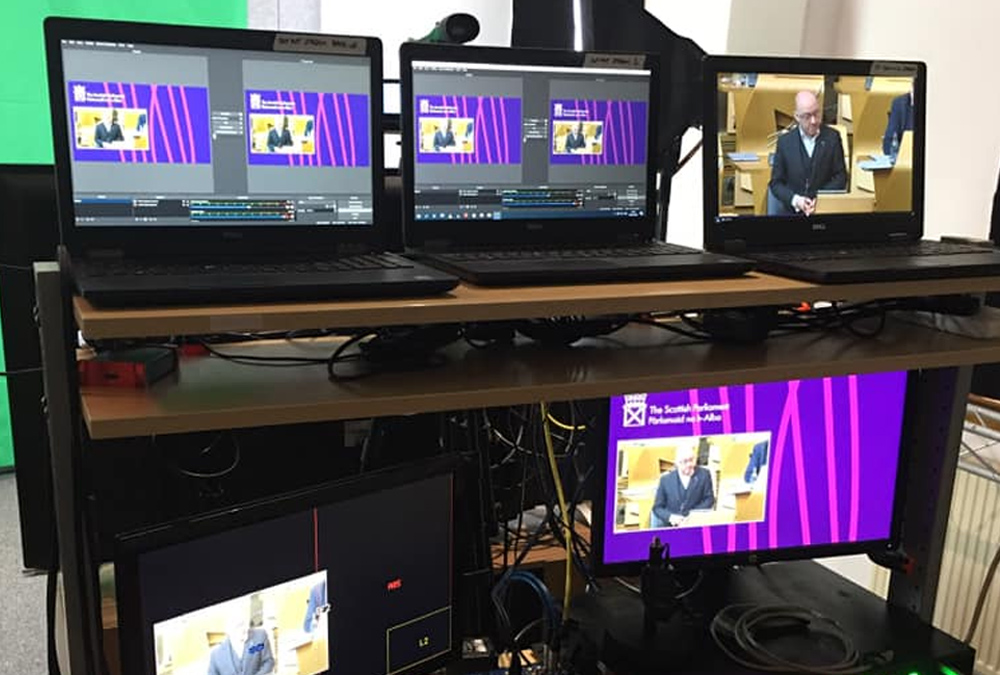
Simultaneous Interpretation
Simultaneous interpretation is needed at a meeting where more than one language is spoken but not all participants can understand all languages. It is the process of converting the spoken word from one language into another in near real-time (simultaneously).
The process of Simultaneous Interpretation is termed ‘Interpretation’ as it is concerned with the true meaning of the communication rather than a ‘translation’ (a literal conversion) which can lose meaning, hence the phrase ‘Lost in Translation’. Interpretation seeks to prevent any loss in meaning. The service is also quite often referred to, some what erroneously, as ‘Sim Trans’.
How does it work?
Simultaneous interpretation is carried out by real people! Interpreters are not expected to be replaced by machine translation at any time soon, as computers have difficulty in coping with humour, sarcasm and physical gesture. Google Translate, though very clever, is no substitute. The interpreter listens to what is being said and at the same time renders what they hear orally in to their specialist language.
Interpreters
Your interpreters are the most important element of any simultaneous interpretation service. There is no substitute for a good, time-served conferencing interpreter.
Simultaneous interpreting is another skill-level up from consecutive interpreting, so only qualified interpreters should be used. The success of your congress is heavily dependent on you being able to understand each other and as such it is a false economy to use a novice interpreter. Interpreting is a very skilled and intensive job and so interpreters work in teams of two for each language.
AVD can help you source interpreters from a number of agencies with whom we have worked in the past.
In room
Interpretation requires specific audio visual equipment. We take care of every element of the process, from the conference microphones in the room through to the delegate receivers and everything in between.
All equipment is ISO standard and is set up, operated and removed by our technical team. This has the following advantages:
- Excellent working environment for all participants.
- The best in audio quality.
- Immediate technical support by the dedicated technician in the room through out the day.
- Provides the best results for quality of interpretation and participant understanding.
- Seamless working with multiple languages and relay.
- Lowest cognitive load for the interpreter allowing them to concentrate on the languages and not the technology.
- 100% secure if discussing sensitive subjects.
Remote
For remote interpretation we now have our own studio to support online events like webinars and video conferences. Rather than work remotely we have interpreters come to our studio, (or we can bring our studio to you, contact us for more details). Using a studio, as opposed to all working in distributed isolation, has the following advantages:-
- Good work environment free from disturbances.
- Sound attenuating booths for each interpreter.
- ISO standard equipment providing good quality audio.
- Full technical support to the interpreters greatly reduces the cognitive load on the interpreters so they can concentrate on the task of interpreting.
- Allows for seamless handover between interpreters as they are working from the studio and ensures no channel blocking.
- Business grade fibre internet connection.
- Tech to monitor outgoing audio and monitor on line audio.
- The tech sets up the studio to your needs and can test lines and audio feeds the day before the webinar and on the day of the event to ensure there are no technical issues. We manage the on boarding of the interpreters to the webinar.
- All systems are hard wired.
Perhaps some of the following have bugged your past online meetings.
- Audio drop out.
- Audio quality is poor and tiring to listen to.
- Background noise.
- Technical issues and not being able to resolve them.
- Interpreters being disturbed in a domestic situation.
- Languages on the wrong language channel.
- Patchy handover to colleagues.
- Crosstalk on channels.
- Interpreters using domestic wifi with high contention ratios giving variable results.
If you only have 2 hours, you need to make sure those 2 hours count.

